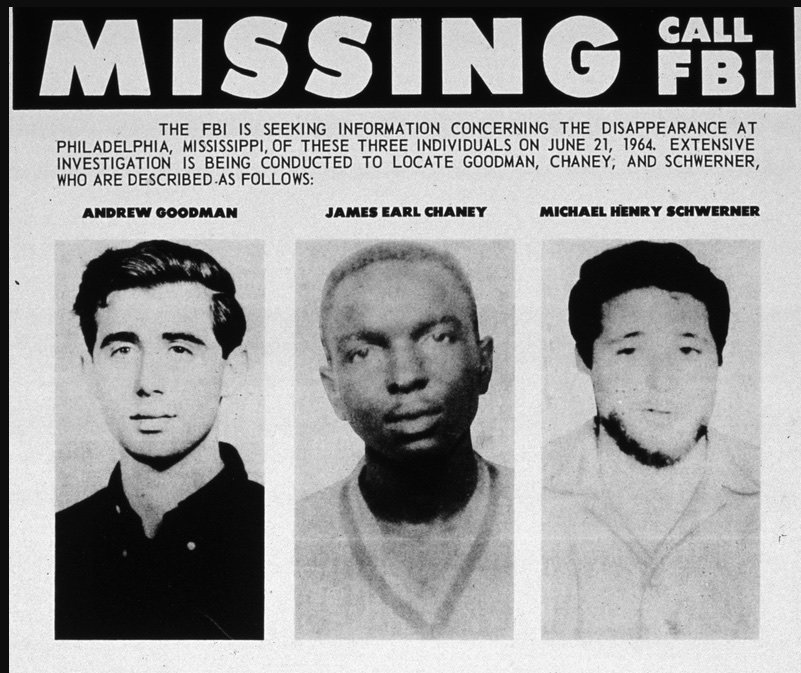EDITORIAL/June 21, 1964: It’s time for an accounting (May 3, 2000)
The following editorial, written by Stanley Dearman, who published and edited The Neshoba Democrat for more than 30 years, appeared on May 3, 2000:
Philadelphia, Mississippi: Put those words into a computer for a web search and what comes up, along with the usual data about geographical places, is a difference that stands out - a distinction that put this place on the map 36 years ago: “ . . . the scene, near here, of the murder of three civil rights workers on June 21, 1964.”
The same information turns up in other reference sources because of an act that turned out to be the single most notorious crime committed anywhere in the United States by the Ku Klux Klan during the violent decade of the Sixties. It turned out to be the high-water mark of armed resistance during the civil rights era. No one has ever been charged, indicted or tried for the triple murders of James Chaney, Andrew Goodman and Michael Schwerner. It made news around the world when the three men disappeared from the face of the earth - until their bodies were found in an earthen dam 44 days later.
It’s time for an accounting. The successful recent prosecutions of civil rights murders committed in the Sixties, including those involving the murder of Vernon Dahmer near Hattiesburg and the conviction of Byron de la Beckwith for the murder of Medgar Evers, shows that it can be done, despite difficulties.
The Neshoba County case would be relatively free of some of the legal questions that caused problems with some of the other cases, such as the right to a speedy trial, because the clock would not start ticking until a person is indicted and arrested.
The office of the attorney general of Mississippi has been reviewing the massive file on the case that was obtained from the FBI. We hope that the attorney general and the district attorney conclude that the case can be effectively prosecuted. It’s time.
There are those in this community who will say that it’s been too long. The trouble with that position is that they were saying it after five years, after 10 years, after 15 years. If it involved a member of their family or a friend, they would never say it’s been too long. And if they claim that right for themselves, how can they in good conscience deny it to anyone else?
Besides, the law in no state or nation excuses murder after a certain number of years.
If that were the case it would mean a free murder every 20 or 30 years. There are some crimes so terrible that no one is given a chance to beat the system by marking time; murder is one of them. When a person’s life is taken away without legal justification, such as self-defense, societies everywhere consider it a crime so horrible that a killer has no right to think he is beyond the reach of the law, no matter how remote in time it may be.
None of this would be an issue if a group of self-appointed saviors of the status quo had not taken it upon themselves to murder three unarmed young men who were arrested on a trumped up traffic charge and held in jail like caged animals until night fell and they could be intercepted by the Ku Klux Klan, a group whose bravery increases in direct proportion to their numbers and how long the sun has set.
If the law enforcement officers involved in the case had just left the three men alone, this case would not have put Neshoba County and Philadelphia on the map the way it did. Nor would it have made fodder for television documentaries and dramas or motion pictures. Nor would there be the steady stream of visitors, or of unflattering journalists from other parts of the nation and many foreign countries, usually around the June 21 anniversary.
The Klansmen may have thought they represented the community; they didn’t represent everyone as, for example, the late Mrs. Annie Lee Welsh who, shortly after the murders, encountered an old man, obviously a Klan sympathizer, in front of a downtown shop. “Well, Lee,” he said, “they did it for us.” Miss Annie Lee drew up all of her five feet and 90 pounds into the man’s face and said, between clenched teeth, “Well, they didn’t do it for me.”
This is a case that never goes away for the reason that it has never been dealt with in the way it should have been. It’s time to bring a conclusion by applying the rule of law.
Come hell or high water, it’s time for an accounting.

